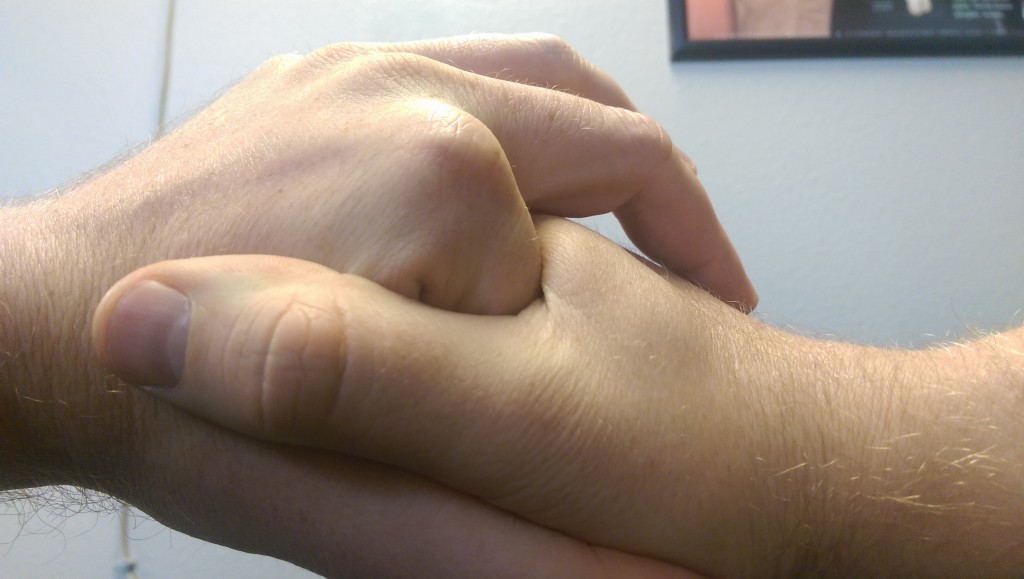Author: Tyler J. Tonso, DC CKTP FMSC
There are a number of reasons why people crack their knuckles. For some people it relieves pain, for some they’ve irritated the joint and it relieves pressure, and for others it’s just constant habit. So is the myth that popping your knuckles causes arthritis true?
First we must understand what the actual “pop” is in our knuckles.
 Joint Fluid and Gasses
Joint Fluid and Gasses
Your finger joints contain a fluid called synovium. Inside this fluid there are also dissolved gasses of oxygen, nitrogen, and carbon dioxide. When a joint is briefly gapped there is a release of joint pressure and audible release of these gasses. This is synonymous with what happens with adjustments of the spine. Despite what you might have been told, the sound is not your joint being “put back in to place”.
So does cavitation(the pop) cause arthritis?
Does The Pop Cause Arthritis?
No! There is currently nothing that shows cavitation causes arthritis in any joint. Adjustments in the spine causes a brief gapping of the spinal joints, however, people who pop their knuckles tend to grind the joint surfaces instead. There is still nothing that shows this causes osteoarthritis, but people do tend to have hand issues long term.
In a study of 300 people aged 45 and older, habitual knuckle crackers were not found to have an increased risk or presence of arthritis in their hands. However, they were more likely to have hand swelling and lower grip strength. 1
In short, cracking your knuckles isn’t going to cause arthritis like your parents told you, but it is best to avoid popping your knuckles due to the other long term problems it may cause.
If you have any other questions or concerns about this or any other condition please contact our office.
Sources: 1. Ann Rheum Dis. May 1990; 49(5): 308-309.
